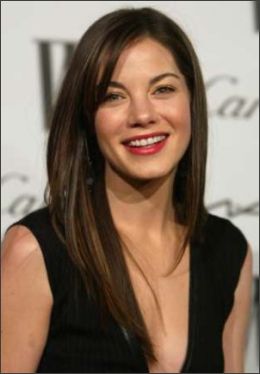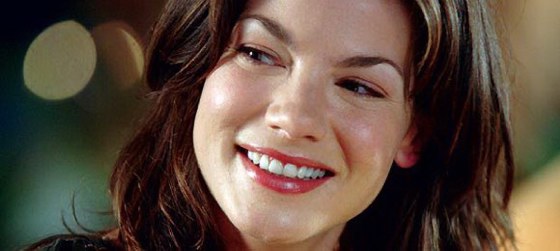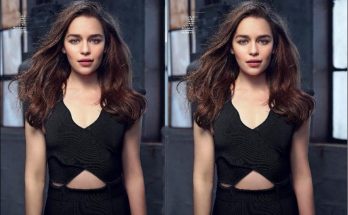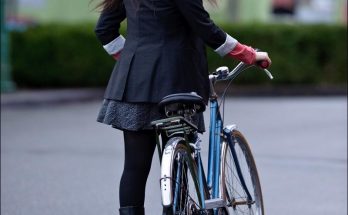As an actor, what do you look for when you first get a script?
MM: Certainly for me, it was the fast paced nature of this script. I seldom ever read a script in one sitting and this one I did not put down. I knew that was a good sign because if the words are grabbing me like that, then knowing who is behind it as far as the director and the other actors, then the decision to do it is a no-brainer.
Do you worry about your specific part and how you will contribute to the story?
MM: Both. I am always reading the role that I am being offered and feeling how I can connect to it. I also worry about how that part will reflect to the larger aspect of the story. For me, I love the idea of playing a single mom. I have never played that character before. Here was this woman who worked really hard and has not had an easy lot in life. She is struggling like a lot of other single moms are. She had a teenage pregnancy and has struggled to make the most of her life. She has had to work around a deadbeat dad and has basically had to do it all on her own.
She also has to deal with the greatest nightmare a parent could face which is the potential disappearance of her child.
MM: Exactly. That is probably the biggest nightmare a parent could ever face. If you were put in that position, how far would you go to save your child’s life?
Audiences are being asked to go on a journey that supposedly, like the central characters, has no clue where they are going. What makes this scenario so interesting?
MM: Like you said, we are going along with the audience and as characters having to figure things out as they come along. We don’t know any more than the audience does and certainly that adds some visceral quality to anyone who is going to see the film. It is very exciting to try to figure out the puzzle and being along for the ride.
How many of the fingerprints of Steven Spielberg did you see on the script or on set?
MM: It was his idea and he actually thought of the idea back from the CLOSE ENCOUNTERS days and has kept the story. It is very timely now and for someone to have that insight over twenty years ago is pretty impressive. He was there on set and to see someone you greatly admire and respect working with your own director was very exciting. You could see that this was important to him.
You said before how impressed you were that so many years ago Spielberg even had the forethought of Big Brother watching and how technology oversees all aspects of our lives. Everything we do or say can be monitored.
MM: That is exactly right. That is why both Shia and I were both so fascinated by this. I don’t think we have looked at our technology the same since. As we have discovered, Big Brother can be intensely watching us all day, from getting cash out of the ATM or running errands. You are caught hundreds of times a day on various video cameras that you are just not aware of.
Were you amazed how much we are monitored?
MM: I live in New York so I am aware that there are cameras placed throughout the city to catch random acts of violence. But I found out that On Star, the car system, has the ability to turn on the system and know exactly where you are at any point whether you like it or not. The Prius has this chip inside it and records your path that you drive and people can have access to where you have been by reading that chip. People can follow you or listen in via your cell phone. All of this has permeated our lives and while we think it is advantageous, you can see how it might be used against us.
The film really seems to explore all of that.
MM: I think the first instance is the phone. Shia gets a call and you don’t know who it is from and all of a sudden we are directed to meet each other in a car. From then on, everything that has to do with technology is sort of confounding us. It is directing stoplights and taking control of our lives.
We all are skeptical and just to receive a random phone call directing us to do something wouldn’t guarantee that we would cooperate. But when you see someone running towards you with a gun, you somehow just might take the chance and listen.
MM: Right. Literally every decision that we make is a split-second life and death decision. We don’t have time to try and get help or to even discuss it. The two of us have to make a split-second decision and that is what keeps you on the edge of your seat because we have to keep just going, going and going.
Had you ever met Shia before this film?
MM: I met him very briefly on a movie called CONSTANTINE but we only had one conversation. It is really exciting to see him again.
 How beneficial is to work with an actor that you really don’t know where you play people that really don’t know each other?
How beneficial is to work with an actor that you really don’t know where you play people that really don’t know each other?
MM: It actually helps quite a bit. The great thing about Shia is that from the moment we first met, we both wanted this film to be great and so we came into this working really hard. We knew that we were prepared to go for it and try and do as many of the stunts ourselves that they would let us. We didn’t know a lot about each other but this movie went on for a really long time that as the film moves along as in real life, we got to know each other very well.
What impressed you about your co-star?
MM: Here is a guy who is 21 or 22 years old and he is amazing actor. I can’t imagine what he will be like 10 years. He is good even in his rehearsals. He is committed and dedicated and work is so important to him. He strives to make sure the director gets what he wants. He has this boyish quality, but he is growing into a very talented young man.
The first time the two of you have a real conversation in the film is aboard a garbage barge. That is an interesting metaphor, as the two of you almost seem to be thrown out as well. How do these types of elaborate set pieces lend themselves to you as actors?
MM: We had an amazing production designer. He built an exact replica of the US Capital on a sound stage and it was amazing. As an actor, even though I do hair, make-up and wardrobe, to actually be put into an environment as real and honest as possible only can enhance our performance. Going to Chicago and to actually drive and have the car chases and going to the scrap yard in the actual place just made it unbelievable. We shot our nights at the scrap yard and it was very bleak. It represented what these characters were going through. It was a twisted metal wreck and that almost represented who they were at that point. We are just in the middle of that and don’t know how we will get out of it and then we end up in a garbage dump, which is ironically how we are feeling (laugh). It is really important to have those set pieces and environments.
As this is an action film, what was physically required of you?
MM: I have never done so much running in my life. All we did was run in this film. Shia runs in all his films but he does not have to run in heels so HE is a bit faster than I. It was a struggle to keep up with him.
Did you try and condition yourself before you started shooting?
MM: No. I didn’t realize how much running there would be. It was unbelievable. I actually came right in to this off another film so I didn’t have that much time to prepare anyway. I did like a lot of the stunts. We got to jump off the hood of the car as it dangled high in the air. We were harnessed in so it was fun. In the DHL facility at the airport, there is that great scene of us going through the conveyor belts at this packaging plant. It was basically “Chutes and Ladders” for adults. We were literally on the conveyor belts and going up and down and all around. It was actually a bit dangerous and I cannot believe we did it all. I enjoy action and it is a part of my personality so it was fun to get to explore that. I appreciate it when films allow me to do that. I had this great stunt woman who doubled me when there were stunts that I just couldn’t do but it was so much fun to do the ones I could. I got the bumps and bruises just like what the character would and I liked that.
You talked about the physical but I would like to ask you about the emotional. You are not the damsel in distress. How important was it for this woman to have a strong core under this adverse scenario?
MM: I think this woman learned from a very young age to be strong. She had a child on her own and that is not an easy thing. She got a backbone as a result of that and so I didn’t want her to be a victim. She is going through some extreme circumstances but none of those circumstances could be as extreme as possibly losing her child. For me the emotional came from anger and not wanting to be taken advantage of. She works very hard. She is not very trusting of men because of her ex-husband and so she is distrustful of Shia’s character as well. She doesn’t know who is to blame. What is interesting is that each one of these two people is distrustful of each other. It is very combative and stressful and it is not until we both here the voice at the same time that there is more to this picture than what is seemed. Still though, it takes a while for each of us to trust the other. We don’t know the background of each other and so it takes us to get to the barge where we have our first real talk that we understand how we have to try and navigate what is going on without getting hurt.
It is funny how audiences love to be placed in that tense scenario in a theater but do not want that in real life.
MM: I think it is because you can feel it emotionally and go through it and experience the adrenaline but not have to suffer the consequences. You get that adrenaline rush vicariously. What I really like about this film is that it asks the question, “How far would you go in a situation like this?” Would you rob a bank? Would you shoot a gun? Would you put another person’s life at risk to save someone close to you? These questions get asked and these characters only have a split second to make their choices. What would you do? and the audience has to make these choices as well.
Most actors relish the opportunity to look glamorous in their films. One presumes you were told to look at gritty as possible.
MM: I have to tell you that I had four outfits that I initially loved but after five months, all I wanted was a change of clothes (laugh). I broke lots of heels on my 3 inch stiletto boots. I had to go into makeup to get cuts and bruises put back on. We had to put dirt constantly on our hands. It is a real testament to hair and makeup because they had to pay such attention to continuity because everything kept changing back and forth with different scenes. It is really amazing what they did. Over the course of the film, they didn’t have to keep making us look so beaten down because we actually started showing our own bruises and cuts (laugh).
Is there one day that stands out as a testament to your resolve?
MM: There are actually several. A really great day was our first day in Chicago. We were in the middle of a field in the country about 60 miles south of Chicago. It was so cold and we were underneath all of these electrical lines. The scene was amazing and shot so beautifully. We were both so cold but we were so supportive of each other. It was a really big dialogue scene and it helped us bond. We knew if we could get through that day, we could handle the whole film.
The film also doesn’t take the typical tact of having your two characters become romantically involved.
MM: Thank goodness. That was something very important to Shia, DJ and me. There was some talk at some point but we all knew that angle would be too predictable. These two learn a lot about each other and about themselves but I think that is enough to satisfy a moviegoer without them locking lips. In my case, as a result of what she goes through, she is able to let her guard down and trust. I think he actually matures.
What can you say about your director? What did DJ lend you as an actor to make this film special?
MM: I cannot say enough about him. I have such respect for him. He is very energetic and loves directing. He understands the characters and while he cares about the action, he knows that the actors have to understand their characters and to understand their plight. It was important for the audience to get emotionally invested in these two characters and so we worked really hard to preserve that. He gives such subtle, simple, quiet direction that really works. For me, he has children so the thought of that happening to him made the scenario personal for him and enabled him to direct the emotion.
What do you hope audiences take with them when they walk out of the theater?
MM: I don’t think they will ever be able to look at technology the same again. Their heart will be thumping and I sort of think it will give people some insight. Some of the things you see in the film are true and hopefully people will take notice to understand what the technology actually is and can do.
You talked about the heart racing aspect to the action. Do actors feel that momentum on set while shooting?
MM: Oh yes. The fortunate thing is that we really were being chased and running and firing guns. We jumped 20 feet freefalling on a harness so you feel that as an actor.
Is that fear or excitement?
MM: If it were fear, I wouldn’t do it. It was excitement. Shia was great to be around for all of that and so that helped. It might be harder to do if we really weren’t actually doing the action but as we were, it put us right into the moment.
Share with us one specific moment when you felt right in the action.
MM: That would have to be the car chase. Porsche was kind enough lend us one of their Cayenne TurboS. That was OUR second home, so to speak. I was behind the wheel and so when that voice tells us to drive, it becomes a 12-minute car chase through the streets of Chicago. Lights are turning green for us and we are bypassing crashes and we are able to avoid all of the problems because the technology is working to assist us to get away from our pursuers.
Did you go to driving school to prepare?
MM: NO. But I was going pretty fast when we first got in the car. Shia was a little alarmed. I felt safe and it was fun to go so fast. There were stunts where our doubles had to do some of the driving. We then end up in a scrap yard where a crane actually takes us up about 50 feet in the air. We did part of that on green screen and then jumped out of the windshield of the car.
What is going through your mind?
MM: You feel that it is a bit crazy but you trust all your crew. As you go up higher and higher, you start to think what the hell are you doing? Once you do it, it does become one of the most unbelievable rushes. In the first fifteen minutes of the film, you are off and running and it doesn’t stop.
Hits: 49



